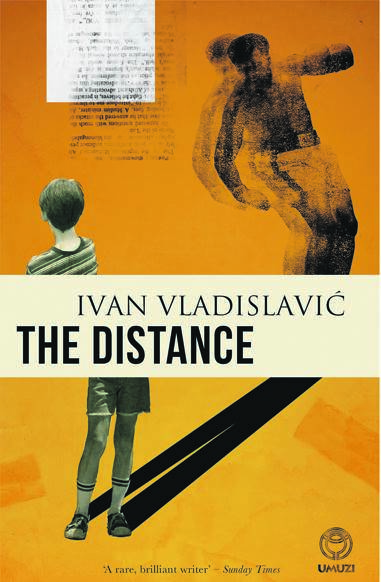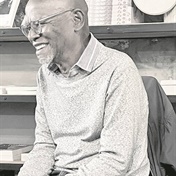
The Distance by Ivan Vladislavic
Umuzi
205 pages
R270
.....
When Chester Missing shed blackface and came out as a white chappie like his handler, the political statement might have gone largely unnoticed outside of the comedian community.
Certainly, it set me soul-searching about blackface in another cultural form – novels written by progressive white, post-apartheid authors. Why do we as white writers create unconvincing black characters in fiction? Is it self-hatred, shame, ignorance, or a desire to be appreciated beyond the obvious limits of a white readership base that makes us deploy black protagonists?
What do black readers and writers feel when white writers write black characters, and is it possible to write a progressive South African political story without pretence as a white author? Of course, fiction should allow for all possibilities, no constraints and no censorship; fiction is a thing of the imagination. However, the ability to write character is arguably the greatest aspect of storytelling.
I’ve been debating these questions as I devoured, with great enjoyment, Ivan Vladislavic’s latest novel, The Distance. For those who don’t know him, Vladislavic is a quiet man, a professor of creative writing at Wits, and an author who has written many books, mostly prize-winning ones. He’s regarded as one of our great authors.
The Distance is narrated by the bookish schoolboy Joe and his mocking older brother Branko. Vladislavic slides the reader into their ordinary white Pretoria family home in the 1970s. The boys read comics, their mother suffers from anxiety, knits and does her daughter’s hair, their dad is an alpha male. Joe is a creature apart. He scoots around the floor on his back studying the undersides of the furniture and the world bottom-up. He makes lengthy lists of the lineages in the Bible in case he should need the names at a later stage. He is obsessed with Muhammad Ali and keeps scrapbooks. In an era when boxing is covered by the newspapers, Joe cuts out every item he comes across.
He takes pleasure in Ali’s hip-hop lines. He identifies with Ali’s chutzpah and with Ali’s self-definition as “lyrical, fresh and smart”. Possibly for Joe, a boy continually bullied for being different, Ali’s appeal lies in the power he owns and declares for himself and unleashes on his opponents.
What turns this into a highly political book is Joe’s expanding consciousness as he reads up on Ali. Ali’s increasing acts of resistance to his surroundings speak to Joe – the nobody, the ordinary person in everyday life so well theorised elsewhere by Michel de Certeau. And, in turn, Joe’s quiet influence on Branko reflects the way resistance to authoritarianism grows, as did resistance to apartheid.
Vladislavic explained at the launch that the book was semi-autobiographical (he grew up in Pretoria, was obsessed with Muhammad Ali and kept scrapbooks). And perhaps, though he did not say so at the launch, he was politically influenced to resist authoritarianism in exactly the way Joe was.
Vladislavic worked quietly as an unknown activist for decades. If not for him, writings by many members of the Black Consciousness movement and now-famous national authors would not have emerged as readily between the 1970s and today.
I thought I might not like a book about boxing, a sport I hate because it is so macho, violent and bloody – yet Joe’s Muhammad Ali obsession, and his delight in the superstar’s utterances and successes in The Distance is different.
The cuttings obviously provide an accessible tool for a bright schoolboy to navigate balance, power, sexuality, language, world issues and whatever else ticks through the mind of a teenage boy: “Sex was completely normal in France, he assured us, even the schoolkids f**ked like fish. We were still figuring how to talk to girls, how to lay our hands on FLs, effies as we called them with counterproductive familiarity, and what we’d do with them if we ever succeeded.”
Vladislavic’s trademark humour and dancing language never disappoints. I couldn’t put it down.
Partly, since it is Vladislavic, nothing is quite as simple as humour and language. Expect twists and turns, tragedy and double-voicing layered over this extraordinary book.




 Publications
Publications
 Partners
Partners








